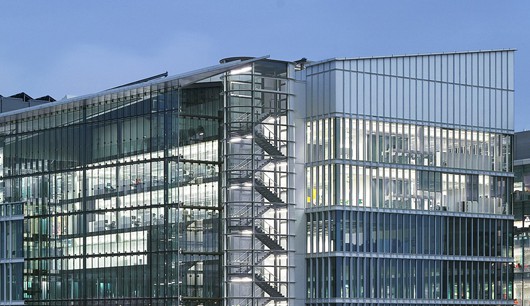
AstraZeneca is “turning the corner” after a tricky few years marked by patent expiries and will return to sales growth in 2018, according to chief executive Pascal Soriot.
Revenues were down 2% in 2017 to $22.47bn overall, but beat analyst estimates in the fourth quarter thanks to a good performance from new cancer drugs and a 30% surge in sales in China, although the cost of new product launches pegged back fourth-quarter profit.
AZ brought five new medicines to market in 2017 – including new cancer medicines Imfinzi (durvalumab) and Calquence (acalabrutinib) as well as Fasenra (benralizumab) for asthma – and added new indications for Lynparza (olaparib) and Tagrisso (osimertinib) that helped accelerate sales growth.
The contribution of these drugs as well as blockbuster sales for antiplatelet therapy Brilinta (ticagrelor) and diabetes drug Farxiga (dapagliflozin) allowed AZ to boost operating profit by 2% to $6.86bn last year. Analysts have raised questions about the underlying quality of AZ’s earnings however given that ‘externalisation’ revenue from the sale of assets or partnerships rose 38% to $2.3bn last year.
Tagrisso for lung cancer led the charge in AZ’s oncology portfolio, with sales more than doubling to end the year just shy of the blockbuster threshold at $955m, with cancer immunotherapy Imfinzi adding $19m in total – mostly in the fourth quarter – to claim third place in the bladder cancer market.
PARP inhibitor Lynparza for ovarian cancer weathered competition from other drugs in the class and grew by a third to $297m in the year, thanks in part to the assistance of MSD which is helping to commercialise the drug and a new indication in breast cancer. Mantle cell lymphoma therapy Calquence has a long way to go before it can challenge main rival Imbruvica (ibrutinib) from Johnson & Johnson/AbbVie, but according to AZ is picking up 20% of new prescriptions in the US, where it was launched at the end of October. It brought in $3m in the fourth quarter.
On the downside generic competition took a toll on cholesterol blockbuster Crestor (rosuvastatin), cutting sales by $1bn over the course of the year to $2.6bn, although the cumulative effect of patent expiries – which also affect antipsychotic Seroquel XR (quetiapine) and gastrointestinal drug Nexium (esomeprazole) – are starting to dissipate.
“Our strategy is working, propelled by a strong pipeline, good sales performance and continued cost discipline,” said Soriot.




